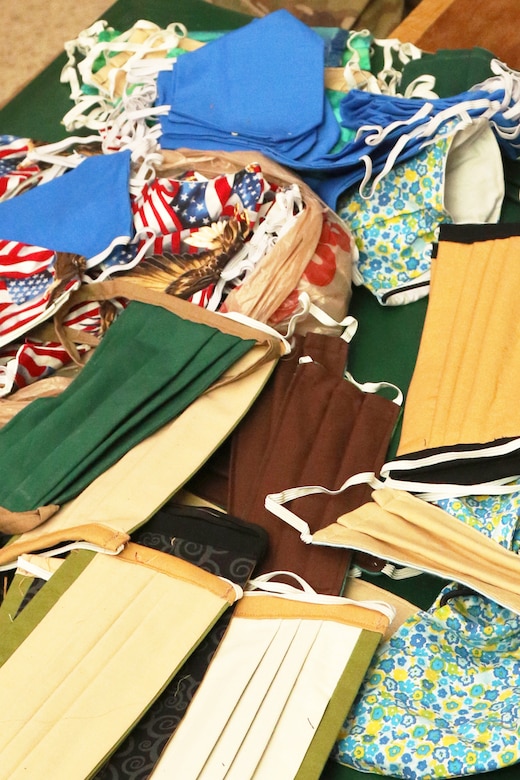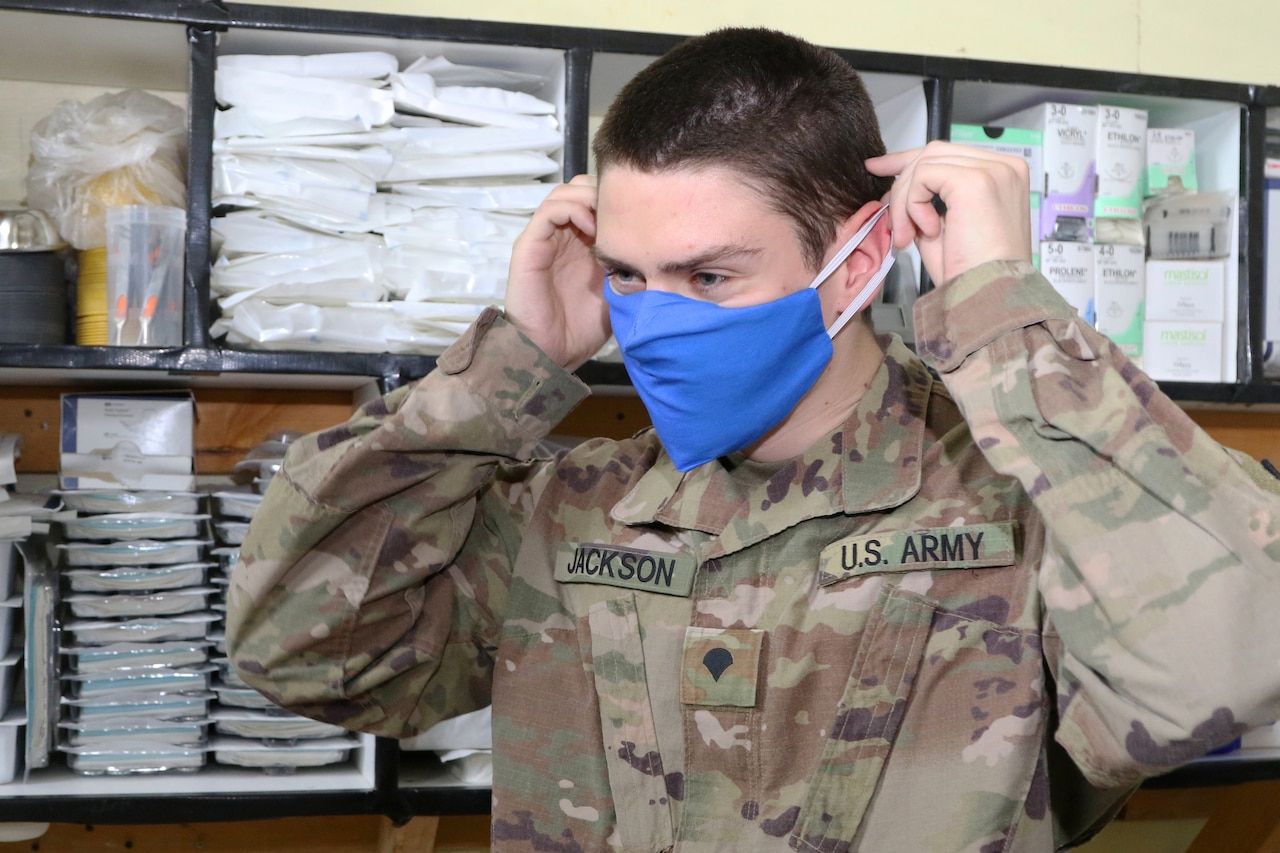Aug. 14, 2020 |
When the order came in April to start wearing masks because of the COVID-19 pandemic, many troops in Iraq improvised, creating protective equipment with T-shirts, scarves and neck gaiters wrapped around their faces.
Then assistance arrived through the mail for troops at Al Asad Air Base.

The Georgia National Guard's 248th Medical Company (Area Support), which provides care for personnel stationed there, was in a unique position to see the problem. The unit took precautions and prepared for the threat of a COVID-19 outbreak, but the number of surgical masks they had was limited. The masks were not designed to be reused, and they were difficult to replace. Regardless, patients who visited the medical station all had to cover up.
"We wanted to provide for them," Army 1st Sgt. Richard F. Jordan said. "They can't get [surgical masks] as quickly."
Jordan's wife, Renee, is a member of the unit's Family Support Group. She contacted various military wives groups, including "Cindy's Baking Angels," Jordan said. At her request, volunteers with the care-package organization started making the masks by hand.
Jordan said he expected that only about two dozen masks would come to the unit. Instead, about 2,000 showed up.
"I was blown away," he said, noting that service members would have to spend at least $10 to $15 to purchase an equivalent cloth mask. "That's huge."
The donations arrived in various shipments during May. They ranged from plain green to decorative red, white and blue. Some tied on by hand, others had elastic ear loops, and many were made so users could put an additional filter inside.

"They're all done differently," Jordan said. "Friends and family made these colorful ones because they weren't sure there was a standard."
The unit commander, Army Maj. LaTonya Hicks, said she was impressed by the number of donations and complimented those who made them.
"It gave everyone a chance to have multiple masks," she said. "It means someone was really considerate of the soldiers overseas. They're really thinking of the base as a whole."
Defense Department guidelines require cloth face coverings when personnel cannot maintain 6 feet of distancing in public or work areas to help prevent the spread of COVID-19. The cloth masks sent to the base provide better protection than improvised scarves, Hicks said.
The number of masks meant they were able to easily distribute them to civilians and service members throughout the base – not just patients and soldiers in the unit, Hicks said. Likewise, they were washable and therefore reusable.
"There's surely a need," she said. "To think about our company and the deployed soldiers, that's heroic."
(Army Sgt. 1st Class Gary Witte is assigned to the 207th Regional Support Group.)








No comments:
Post a Comment